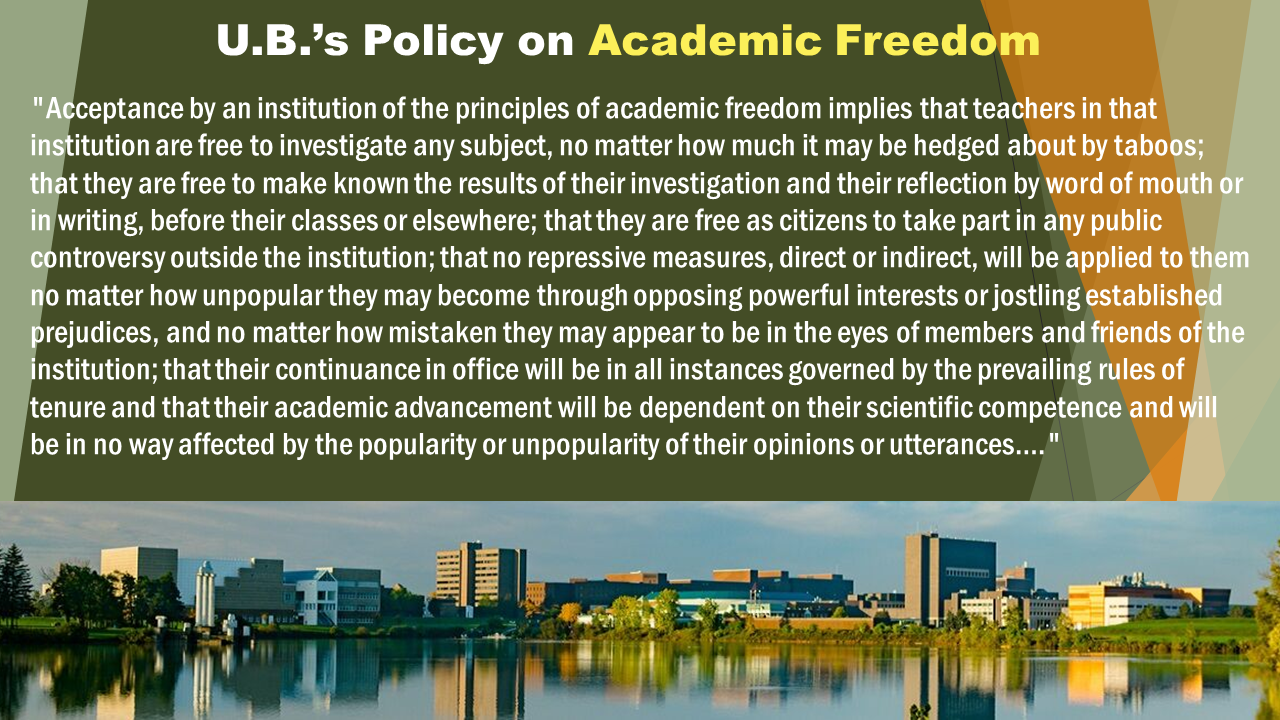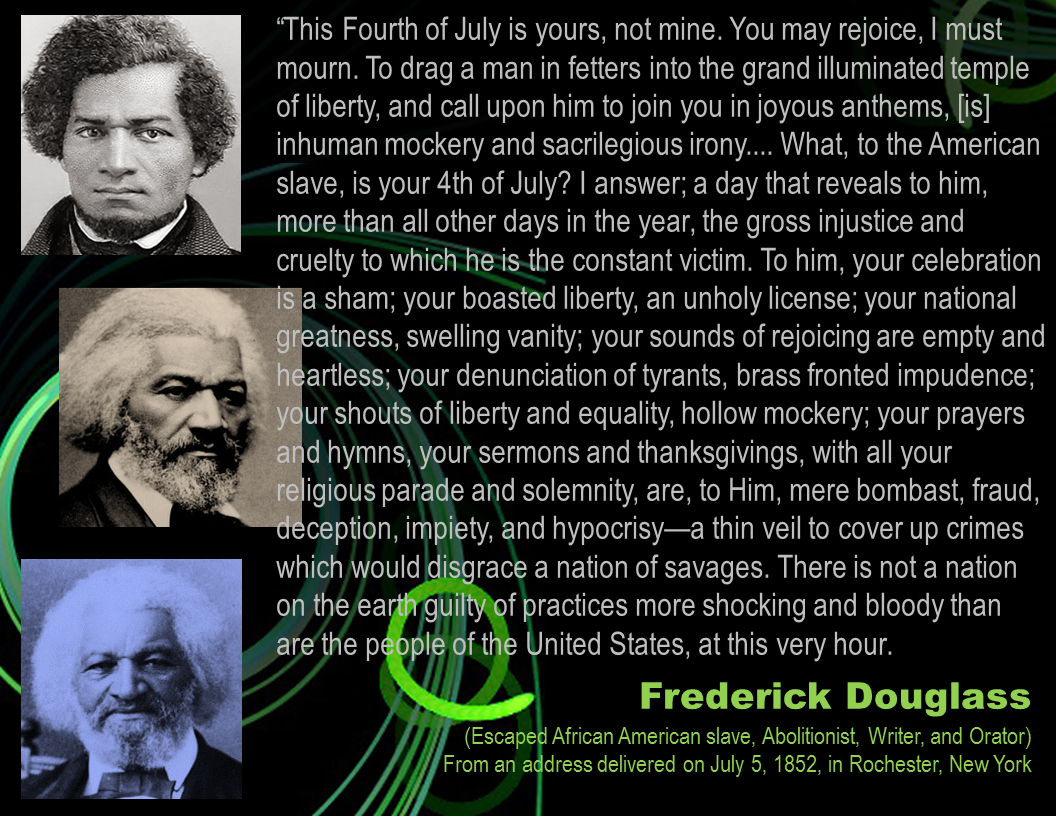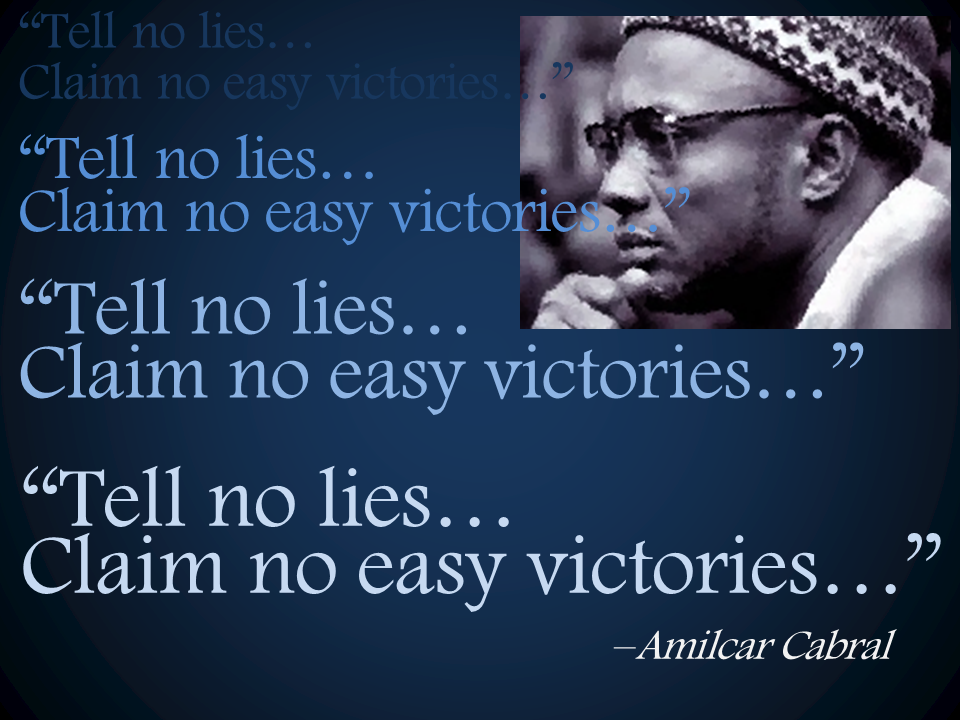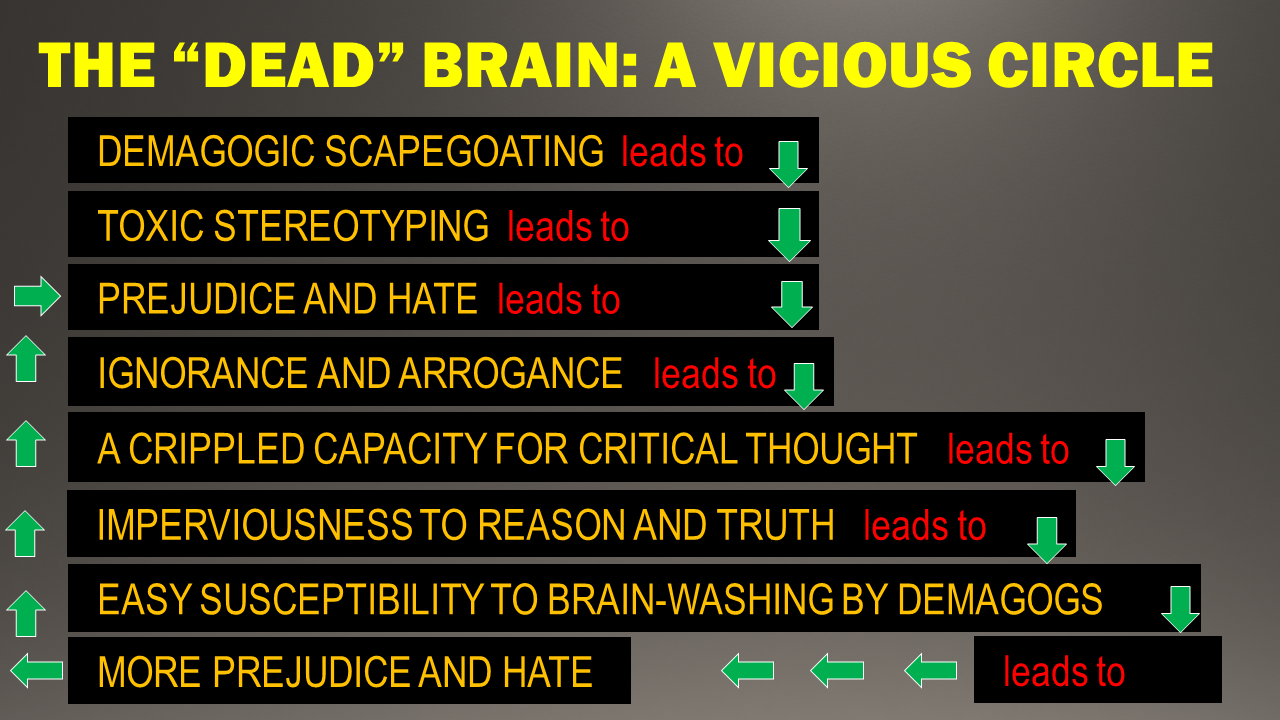- This an online course, but no
classes on Zoom. (Therefore, no class attendance and no class
participation). Super-important: You must have access to a reliable
internet and a
computer.)
-
No required textbooks. Instead, all class lecture and homework materials
will be available online 24/7 to give you flexibility in how you manage
your time. NOTE: For copyright reasons they will be available only via
this class home page and NOT via UBLearns (see homework schedule
below).
- Homework assignments will consist of readings AND films/documentaries. Each
film/documentary homework assignment will usually comprise two
sections--either together within one video or sometimes separately.
Section one will comprise class lecture materials (notes, slides,
film/video excerpts, still images, etc.), while section two will
be the film itself. NOTE: for test purposes both sections will be
equally important.
- Important: you must download all homework materials to you computer, so you can have access to it 24/7.
- Because
this is an online course it will be heavily test-based to ensure that
you are doing your homework assignments. (See below for more about the
tests.)
- Tests/quizzes altogether will be worth 80% of final course grade.
-
There will be an optional final exam
during exam week. If you choose to take it, it will serve as extra-credit.
-
There will be a two-part test-based term paper project, it will be worth 20% of your final course grade.
- Letter
grade equivalents of percentage points: A =97-100 A-
=93-96 B+ =90-92 B =85-89 B- =80-84
C+ =73-79 C =66-72 C- =60-65
D+ =55-59 D =51-54 F =0-50
- Do
not use your phone to access either homework materials, and/or to do the tests.
- Most
communications about the course will be via course announcements on this page and via emails as it progresses.
You must read your emails from the instructor regularly AND save them in an email folder you must
create in your email account. IMPORTANT: See also note below about emails format.
- You must know how to navigate the internet, including accessing Brightspace (UBLearns). You must know how to read
text on a computer screen. You
must take notes on the homework material, but your notes must be very,
very brief (about two or three words per page or scene, as you go
through the material--taking detailed notes means you are not digesting
the material). You will need these notes for tests, since tests are open book.
- If you claim that you cannot see a link for
an item (or some other essential information), send me a clear
picture of your entire computer screen,
edge to edge (meaning EVERYTHING visible to you on your screen must be
included in the picture), as an email attachment. Reminder: IF, in the extremely rare instance,
there is a missing link
(or some other information) it will affect the entire class, not just
you. (The internet does not discriminate against specific individuals,
whoever they may be.)
- NOTE: If you are still registered for this course beyond the final
add/drop deadline for course registration, then it will be assumed that
you have thoroughly read, understood, and agreed to abide by all course
requirements for this class. In fact, you may be asked to submit a
disclaimer (as a small assignment) that you read the syllabus diligently
and will fully abide with all the course requirements.
What this Course is About
- First, through the medium of audiovisual materials
(films, videos, etc.) this course will aim to explore select topics from
the historical and current experiences of Black people (that is anyone
whose ancestral heritage can be traced back to Africa). Second,
since this is a film course, it will also cover select introductory
topics in the making of films (e.g., the significance of the film
score).
- This course is not
intellectually demanding (in fact, compared to your other courses, it
is probably the easiest course you will ever take in this school);
however, it is designed for those taking
no more than 15 credit hours total, and do not have a full-time job.
<--Read this sentence again. Homework, on average, will require about one "concentrated" hour per day
of your time
(which equals to about 7-8 concentrated hours per week--this is similar
to doing 3
hours of class time, plus about 4 hours of homework for an in-person
class). Note: A concentrated hour is an hour that requires full
concentration from you--that means no distractions of any kind!
- The learning outcomes for this course are available via the long form of the syllabus (see link below).
About the Tests
- Tests will take place approximately every two weeks (see schedule below).
-
Tests will comprise multiple-choice questions. Note: majority of test
questions will be aimed at determining if you did do the homework at all
AND that you did the homework diligently.
- Tests will not be proctored.
- Tests will be open book.
- Tests
will carry some bonus points. Why? As an insurance against the
possibility of an error or against the possibility
that you, as an individual, may find one or two questions problematic in
some way--assuming you did all assigned homework diligently--repeat,
diligently! (Needless to say, if you did not study the homework at all,
or if you did not study it diligently, you probably will find all
questions problematic. Yes?)
- Tests will be available online only via the AAS 253 course page on Brightspace (UBLearns)--and not via this class home page.
-
Tests will usually take
place per your UB course schedule for this class; that is, on
Mondays,
between 12:30 pm and 3:10 pm--however, the exact time and duration for
each test will be specified (see below). NOTE: This day/time cannot be
changed (to prevent cheating).
- Tests will be available only for the duration of the time allocated for the test after it
becomes available on Brightspace at the specified time; not
before and not after.
(Example: Supposing the test is 45 minutes long and it starts at 2:00
pm. It will close at 2:45 pm.) Once a test begins it cannot be
“reopened” if you step away from it for any reason. If, in my
estimation, you had a valid reason for stepping away from the test then a
new test will have to be constructed. The same holds true for missing a
test.
- Warning: Tests/quizzes will be very
demanding IF you don’t do your homework at all, or you don’t do it on on
time, or if you do it SWD (studying while distracted). NOTE: Since
tests will be every two weeks, attempting to cram about 14-15 hours of
homework (total time) into about 3-4 hours at the very last minute on test day will
NOT allow you to do well on the tests--in fact, you probably won't pass them.
About emails
- To foster professionalism, when you send me e-mails, they must be in
a professional format; otherwise, you may not get a response. Example
of professional format: Begin with “Dear Instructor”;… and end with
“Sincerely”, …. Plus, your name as it appears in school records.
- Emails must be sent only via UB mail and NOT via UBLearns.
- The subject heading of your email must always include these two
items: the course number, and what your email is about in a few words.
- Emails will usually be read and answered on the days this course is
scheduled. Again, all e-mails must be sent via regular UB e-mail (and
not UBLearns).
- This is an online course; therefore, do not send me emails with
questions that have already been answered. If you do, I will simply ask
you to go back and read the relevant announcement / instruction that
answers your question.
- Again, because this an online course, it is really important that
when you write about some clarification you need regarding an
announcement, an instruction, etc. that you quote the exact sentence or
paragraph that you are writing about. (Quoting does NOT mean taking a
picture.)
|
















